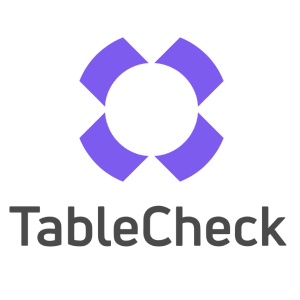Updated April 3, 2025
How to Find a Job in Japan with NO Experience - 2025 Guide
If you’ve ever looked for a job, you probably realized that almost all job listings require you to have prior experience.
While that’s fine for mid-career job seekers, it leaves new graduates scratching their heads. How are you supposed to gain experience if every single company is looking for engineers who arealready experienced?
That’s why I wanted to write this post. There are so many candidates out there with little-to-no experience in an actual tech job, but the potential to be a great asset to a company that gives them a chance.
Let’s look at how to find a job as a software developer in Japan with no experience.
I’ll give you tips on how you can build a good foundation for your future, as well as how you can create opportunities for yourself. I’ll also talk about how you can find a job in Japan if you don’t speak Japanese.
I’ll also briefly cover the psychological side of the job-seeking process, how you should approach it, and how this new approach can make things smoother for you.
Let’s jump right in.
The Psychological Side of Looking for Jobs in Japan Without Experience
I believe that the psychological side of a job search, especially if the wind isn’t blowing in your direction, can take a toll on your mind and disrupt your process.
If you’re relatively new in a field without any work experience, it might seem easier to give up than keep banging your head against the wall. As I mentioned, almost all job listings require work experience in some shape or form. This is sure to cause frustration.
That is, if you believe everything you see on a job listing.
Think of job listings as wishlists. Companies write them by thinking about their ideal requirements and then listing them all. As a job seeker with little-to-no experience, you have to find the areas where they’re willing to compromise.
Now, I’m not telling you to apply for jobs that don’t match your skills at all. You shouldn’t lie or promise things you can’t do, as you’ll embarrass yourself during the interviews, but rather show them that you have the potential to fulfill what’s asked of you, even if you’re not their ideal candidate.
And don’t be hard on yourself because of the perceived demands of the industry. Instead, keep trying and applying for positions. Focus on presenting what you already have as best as you can.
You can use the guide I wrote on how to make your LinkedIn profile stand out for this, and my blog post on how to write an effective cover letter is another great resource.
Of course, don’t forget that there is actually a lot more you can do to make up for your lack of experience, such as building a good network.
Networking Is Everything

Finding the right community and the right connections can really make or break your chances at a job.
Japan has a very diverse and vibrant tech community. Regular meetups happen all year round, and I recommend you follow these religiously.
Meetups can be very beneficial if you’re a foreigner in Japan, as it’s likely that you don’t have that much of a “circle” here just yet.
These meetings are where you’ll meet people who can actually help you out. However, this doesn’t mean you’ll get to meet potential employers or recruiters at meetups.
The reality might be quite the opposite — you might end up mostly meeting peers who are in the same position as you, but networking is more complex than just meeting someone who can give you a job.
Networking is about being in the right circle and surrounding yourself with people who can keep you up-to-date on what’s going on in the tech world. It’ll make you feel like you’re “in.”
The benefit that comes with that is being able to judge the work conditions you’ll come across better because you’ll be “in the know”. Additionally, you’ll hear about opportunities and trends you otherwise wouldn’t hear about.
Besides, you never know what job opportunities a new friend working at a big tech company might bring you.
Basically, going to meetups, preferably in person, is the easiest thing you can do to increase your chances of getting a job here in Japan. All you need to do is show up and put your conversation skills to work.
We even have a detailed guide on the best tech meetups in Tokyo on the Japan Dev blog. This is a great place to start if you’re considering living in Tokyo. You should be able to find meetups for other cities with some research as well — Meetup may help you do just that.
Work on Open-Source Projects
Experience doesn’t have to be earned in an office. As software engineering is a practical job, as long as you can prove that you can do it, there’s no reason they shouldn’t hire you.
Besides, the industry is desperate for new developers. If every company stuck by their demands to only hire developers with experience, business would come to a halt pretty quickly.
This is why open-source projects are another great way to compensate for your lack of experience. I recommend looking for projects in your field of interest and contributing to these projects in any way you can.
Meeting other developers in the ecosystem can be a good way to start. You can collaborate on their projects, and they can contribute to your projects in the future as well. Essentially, this is yet another layer of networking.
However, the point is that being employed is not the only way to gain experience, after all. If you have contributed to open-source projects, that means you’ve put in the time and effort, and you’ve done it all voluntarily.
Being able to show the work you’ve done and the code you’ve written, for instance, is a great way to prove yourself, and it improves your skills in that regard as well.
Also, if you have a dream company that you want to work for, check to see if they have open-source projects of their own. You’ll significantly increase your chances of getting hired simply by contributing to their projects.
Build (and Promote) Your Own Projects

Working on others’ projects is cool and all, but nothing beats having your own projects.
If you feel a bit more confident than just contributing to open-source projects, definitely consider building a project of your own.
Creating a project from the ground up and shipping it out as a complete product shows employers that you can get things done.
Sticking with project to the end is not something everyone can do. It requires planning, discipline, and flexibility to change things on the go. These are all qualities an employer wants to see in a candidate.
Ultimately, seeing through a project (or many projects) is what you’ll be doing on the job.
Alternatively, if you don’t feel like you can do that by yourself, collaborate with a friend. This is different than contributing to an open-source project, as you’ll still be overseeing the project yourself, even if it’s with a partner.
An important thing to remember with self-made projects is that you should also promote your work. This is a common pitfall for developers, as most of them do the work, but no one knows about their projects.
Try to use social media to your advantage. Use platforms like LinkedIn, Facebook, and Twitter to show off your projects and report on your progress. Besides, you might attract other interested developers, which can create even more networking opportunities.
Lastly, writing is a form of promotion, and writing about your current projects and the projects you contribute to is a great way to gain recognition in the field, which brings us to our next point.
Write About Your Work
While sharing your work on social media is a good way to interact with the community and make yourself known, if you can spare the effort and are good with words, I recommend writing in long form.
Having a blog or another medium where you can share your work and your thoughts in detail is a great opportunity to show more of your personality. It also shows your dedication, as creating a blog takes more effort than just posting on your Twitter page.
A social media post can only go so far. Besides, your social media accounts are attached to your whole personality.
A blog, on the other hand, may feel less personal than your Twitter profile and more focused on the niche it’s in, but it can still showcase your relevant thought process and work in progress. Moreover, the spotlight will be on your work rather than other factors that might spark prejudice.
Writing about your work also allows like-minded people to find you. It’s totally possible to even build a following as long as you’re being consistent and keep your content focused.
If you’re fluent in Japanese or at least have decent enough skills to write in Japanese, I recommend that you also write in Japanese. This has two benefits.
Firstly, here in Japan, most employees/recruiters believe that speaking Japanese is a plus. Even if they don’t officially require it, they’ll still secretly prefer it. By writing in Japanese, you’re proving that not only do you speak Japanese, but you speak it well enough to write in a technical niche.
Secondly, English is not as widespread in all parts of Japan, and it’s normal for people not to speak English. If you write in Japanese and are looking for a job in Japan, you’ll simply be reaching out to a wider audience.
What if I’m Not Skilled/Qualified Enough?

Software engineering in Japan doesn’t necessarily require an engineering degree or any degree related to tech whatsoever.
I recently wrote about this in another blog post about whether software engineers in Japan are respected or not. In Japan, the profession of “software developer” has a couple of different meanings.
It can refer to a system engineer who doesn’t really write code but oversees software development projects.
It can also refer to what’s known in Japan as a “programmer.” These are people who do the actual code writing but usually are from non-tech backgrounds, typically social studies, arts, and business.
This means that if you’re also from a different background, you can still get a job as a software developer in Japan. However, you’ll need something to show for it in order to prove that you’re worthy of consideration as an arts major.
Join a Bootcamp
This is where coding bootcamps come in. They’re a great way to get you up-to-speed on whatever it is that you want to learn code for. What’s more, you’ll have a certificate proving that you’ve put in the time and effort.
Even if you know how to code, you might still benefit from joining a coding bootcamp.
Not only will you have a certificate, but you’ll also have opportunities to network with your fellow classmates, who’ll potentially go on to create projects you might want to be a part of in the future.
What’s important here is, of course, picking a reputable bootcamp. You don’t want to waste your time and money on a cash grab that’ll contribute nothing to your improvement.
In another post on the Japan Dev blog, I wrote about the best coding bootcamps in Tokyo. You can check those ones out if you don’t know where to start. There are also some online ones as well if you’re unable to attend in person.
While this may not sound like an effective way to find a job in Japan for people who are well-versed in coding, it will certainly help if you lack the knowledge required.
Joining a bootcamp is by no means necessary for everyone, so you can be the judge on whether you need it or not.
Finding Jobs in Japan if You Don't Speak Japanese
As I close out today’s post, I’d like to remind you that Japan Dev is a great resource for foreign developers, even if you don’t speak Japanese at all.
In our ever-expanding company list, you can find lots of companies that offer the best benefits and have the best work conditions. Many of these companies work primarily in English and don’t require any Japanese skills whatsoever.
Each company on the list is personally hand-vetted by our team, too.
There are currently a lot of job listings from these companies on the Japan Dev website, and these listings are updated daily. Make sure to check back frequently not to miss out on any opportunities. You can join the Japan Dev newsletter to hear about new jobs from these companies.
Applying to foreign tech companies is another good option if you don’t speak Japanese. I talked about these types of companies in my FAANG companies in Japan post in detail. These companies are multicultural, and everyone speaks one common language, which is English.
In conclusion, you can find a job in Japan even if you don’t have prior experience, an educational background, or if you don’t speak the primary language. In the end, it’s all up to you to make it happen.
As a final word, I can recommend that you also read my blog post on how to find a job in Japan as a software developer. I shared some valuable tips based on my own experience, and I believe it’ll be helpful.
Get Job Alerts
Sign up for our newsletter to get hand-picked tech jobs in Japan – straight to your inbox.







